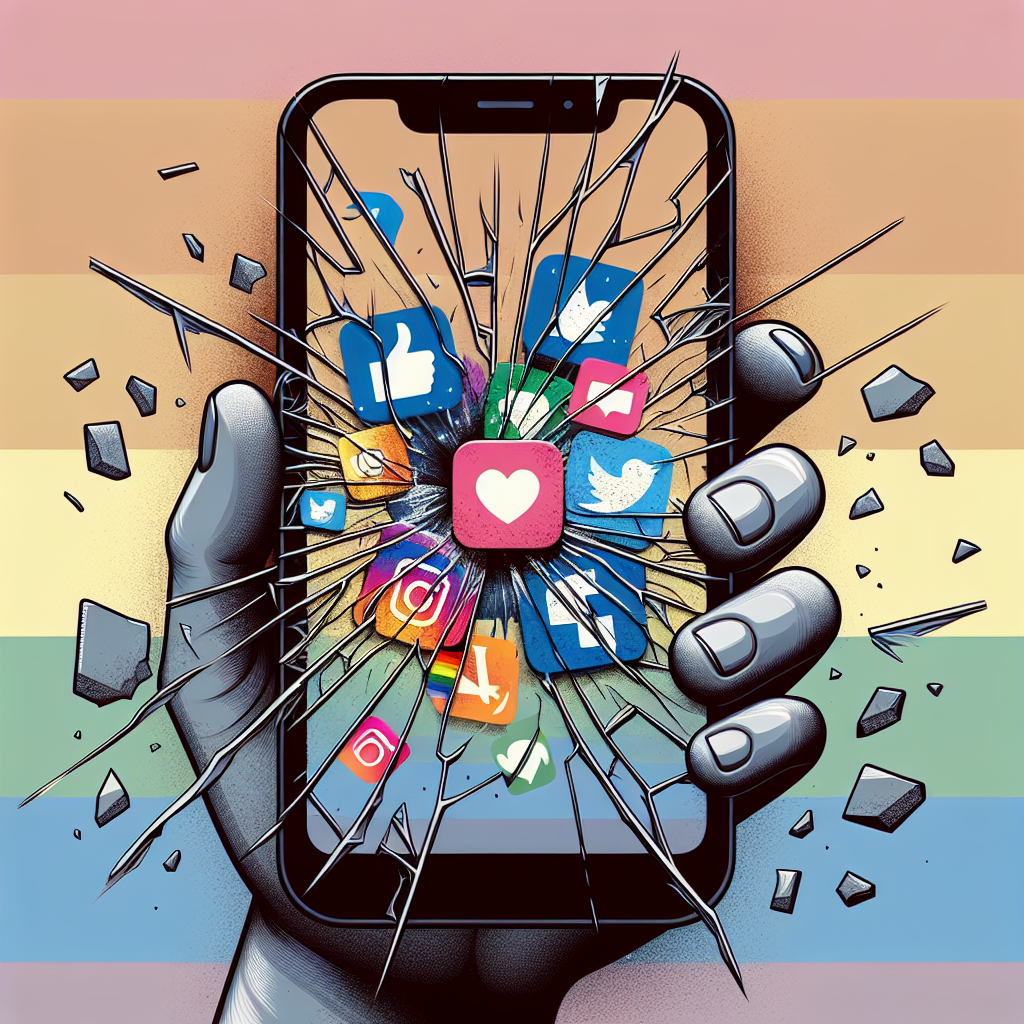Social media has become an integral part of our daily lives, offering a platform for individuals to connect, express themselves, and engage with others from around the world. However, for the LGBTQ+ community, social media can be a double-edged sword, with harmful effects impacting mental health and well-being.
One of the most detrimental effects of social media on the LGBTQ+ community is cyberbullying and targeted harassment. According to a study by the Human Rights Campaign, 42% of LGBTQ youth have experienced cyberbullying, with 27% of them saying that the bullying took place on social media. This kind of online abuse can lead to anxiety, depression, and even suicide among LGBTQ+ individuals.
Moreover, social media can exacerbate feelings of isolation and disconnection for members of the LGBTQ+ community. While it can provide a sense of community and support, it can also expose individuals to negative and harmful comments, as well as comparisons to others that can lead to feelings of inadequacy and insecurity.
Furthermore, social media platforms often perpetuate unrealistic beauty standards, which can be particularly damaging to LGBTQ+ individuals who may already struggle with body image issues and self-acceptance. The pressure to conform to certain beauty standards can lead to body dysmorphia and eating disorders, further impacting the mental and physical health of the LGBTQ+ community.
Additionally, social media can also fuel feelings of internalized homophobia and transphobia, as individuals are constantly bombarded with heteronormative and cisgender narratives. This can lead to a lack of self-acceptance and self-love, causing individuals to hide their true selves or conform to societal expectations, rather than embracing their authentic identities.
The harmful effects of social media on the LGBTQ+ community are significant and cannot be ignored. It is crucial for social media platforms to take a proactive approach in creating safe and inclusive spaces that protect LGBTQ+ individuals from cyberbullying and discrimination. Moreover, it is important for users to be aware of the impact of their words and actions on others and to advocate for a more positive and empowering online environment for all.
In conclusion, while social media has the potential to bring people together and provide a platform for expression, it can also have detrimental effects on the mental health and well-being of the LGBTQ+ community. It is essential for individuals and social media platforms to work together to create a more inclusive and supportive online environment for all.
